She used to be a singer and actress, winning international acclaim in the film The Wedding Banquet (喜宴), in which she portrayed a tough woman from China who tried marrying a gay Taiwanese man in Manhattan to get a green card. Now she is the female Atayal warrior, wearing the tradition sleeveless garments of her people, questioning Premier Yu Hsi-kun (游錫) with a stern face and powerful voice.
She is legislator May Chin (
Two weeks ago, accompanying her as she questioned Premier Yu, were a group of activists from different aboriginal tribes. Together, they sang traditional fight songs. Most of the singers likely had sung and protested in front of the Legislative Yuan many times before, but their voices were scarcely remembered.
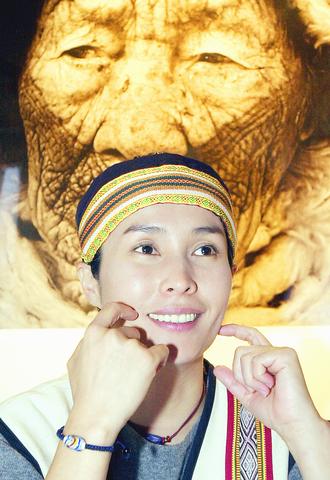
PHOTO: CHIANG YING-YING, TAIPEI TIMES
But now, with Chin singing with them, the spotlight was focused on them. And thanks to the media attention, the long-neglected nuclear waste problem on Orchid Island was finally being heard by the general public.
"It is important that the needs of Aborigines be expressed through her," said Chin Chiu-yen (
This is a role that Chin herself -- as well as her many fans -- had never imagined her playing during her 20 years as a singer and television and movie star.
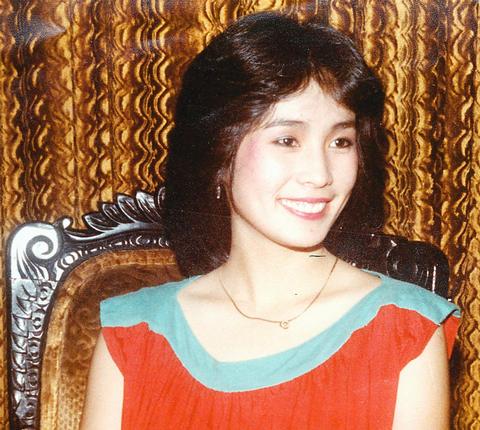
PHOTO COURTESY OF CHIN CHIU-YEN
"This was never in my career plan," Chin said. Before stepping into politics just a few months ago, she claims she did not even know the names of many government officials.
"If it wasn't that fire, which gave me the chance to take up the responsibility, if it wasn't for my liver cancer, which made me re-examine where my life belonged, I would not have become what I am now. I feel my ancestral spirit has quietly led my life in this direction," she said.
Chin's look today usually includes little or no make-up. Only in her gestures and expressions can one find her star quality.
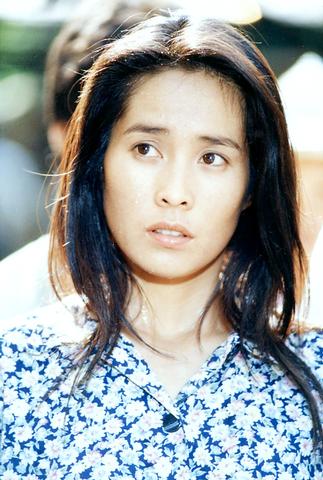
PHOTO COURTESY OF CTS
Stepping into the entertainment field at the age of 20, Chin began as a singer on variety shows. After publishing a few records, she began acting in soap operas in the 1980s. A drama called Love, in which she played a hard-working and devoted mom, made her a household name and earned her up to NT$20,000 per episode.
Chin also began a series of concerts with sexy and sensational performances, and her name became associated with many famous men, from Hong Kong stars to business tycoons. "Earnest and emotionally expressive" were the usual media comments about her.
"I was very conscientious about work. I would ask the director to shoot the scene again when I wasn't satisfied with my performance, even if the director said it was okay," Chin said. "I felt strongly about every person, every small thing that happened around me. Expressing more emotion and feeling resulted in feeling hurt afterward," she said, referring her days in show business.
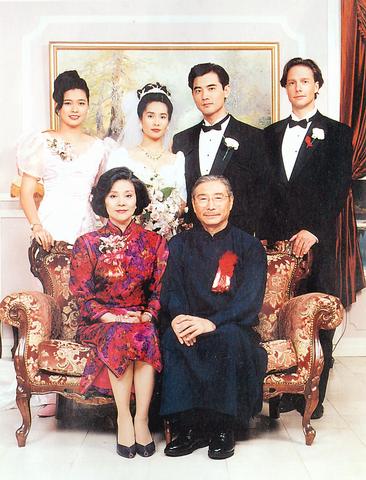
PHOTO COURTESY OF CMPC
Perhaps because of her expressiveness, she landed a role in Ang Lee's The Wedding Banquet, playing a poor artist from China jealous of her fake husband and his boyfriend. The film won the Golden Bear at the 1993 Berlin Film Festival and earned her international fame.
"In that past, I never had a strong awareness of my Atayal identity. Not many people knew of my aboriginal background," Chin recalled.
During the height of her show business career, Chin was involved in a tragic accident. Her wedding costume and style company, May-lin Weddings, at that time a luxurious, up-scale boutique, had a fire. Five people were killed and the five-story building housing the company was destroyed. She herself was injured by heavy smoke. Chin faced a lawsuit for compensating her employees who died and she was forced to give up her career as a singer and actress.
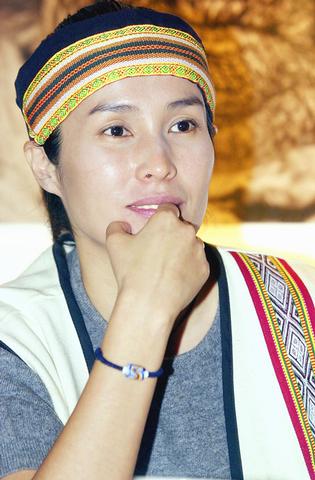
PHOTO: CHIANG YING-YING, TAIPEI TIMES
Two years later, well-known as a drinking queen who treated XO like water, Chin was diagnosed with cancer of the liver and had 8cm of her liver resected.
"After she fell ill, her strength of life became stronger. She went down to see the victims of the 921 earthquake in Taichung, near our mother's hometown," Chin's sister recalled.
The sisters are half aboriginal. Their mother is Atayal and their father comes from China. According to Chin, her aboriginal awareness began the moment before her mother passed away.
"My mom said to me `take me to my hometown' before she closed her eyes. I was shocked and had goosebumps all over my body. I'd never thought to ask where I came from, where my home was. At that time, `home' was a very vague idea," she said.
Now, of course, Chin has found her home -- her "origins," in her words -- the tribal identity of her people. After setting up the May Chin Liver Cancer Support Association, Chin became more acquainted with her aboriginal friends and neighbors. Through their persuasion, Chin decided to run for the legislature.
"She learns very fast. We could see that she cares about the issues from the bottom of her heart," said Chang Chun-chieh (
Chin's office director, Chung Chi-fe (
He told Chin to stick to the aboriginal rights platform and raise the issues to the level of people vs people (Aborigines vs Han), which they believe to be the core of Aborigines' problems.
Donning her vivid costume, Chin made an impression as a legislative freshman.
"Today I've returned to the look of my people, and I'm asking this question on their behalf for the injustice and suffering of the past 56 years...," she said as she began questioning the premier.
In private, she told her workers and assistants that having survived cancer, and now looking back, "since I've been involved with the aboriginal tribes, I feel reborn. And all my past seems vain."
The reborn Chin now has a different language and different gestures. She often uses words like "we," "our people," and "nation." She is more assertive when talking and all she wears is traditional aboriginal clothing.
In her office are big aboriginal wooden sculptures, photographs and artwork, creating the relaxed feeling of an aboriginal gallery. All her 11 staff members wear aboriginal-styled vests, both in and outside the legislature.
"I think I can be the best mouthpiece promoting aboriginal arts and culture," she said as she put on a CD of the aboriginal band The Flying Fish and Cloud Panther Music Collective (
"Monday to Friday I work here and the Legislative Yuan. On the weekends, I go around the mountains to deal with tribal problems. This is a very solid and meaningful life," she says.
The only person who's worried about her new job is Chin's sister. "She's a Virgo, type-A blood, a typical perfectionist. I always need to remind her to take a rest during her busy schedule," she said.
From a past as an artist who was all about self-expression, to a politician concerned about her nation and her people, Chin seems to have shed her past ego.
"When I speak for the people, I'm no longer me ... But when I go back to the tribes -- to my childhood village, singing with sister friends -- I'm me again. I seem to have found the things lost in my childhood," Chin said.
So, will Chin go back to show business again? "It's impossible to act, because of the condition of my health. But I will continue singing. Singing is a natural gift for me. I will probably sing more of our traditional songs, rather than pop songs," she said.
May Chin will perform at the Tungpu Fund-raising Concert, co-organized by her office, The Flying Fish and Cloud Panther Music Collective and Tungpu Culture Workshop. The concert will start at 7pm, Monday, April 22 at the National Arts Education Institute, 47 Nan-hai Rd., Taipei.

A vaccine to fight dementia? It turns out there may already be one — shots that prevent painful shingles also appear to protect aging brains. A new study found shingles vaccination cut older adults’ risk of developing dementia over the next seven years by 20 percent. The research, published Wednesday in the journal Nature, is part of growing understanding about how many factors influence brain health as we age — and what we can do about it. “It’s a very robust finding,” said lead researcher Pascal Geldsetzer of Stanford University. And “women seem to benefit more,” important as they’re at higher risk of

March 31 to April 6 On May 13, 1950, National Taiwan University Hospital otolaryngologist Su You-peng (蘇友鵬) was summoned to the director’s office. He thought someone had complained about him practicing the violin at night, but when he entered the room, he knew something was terribly wrong. He saw several burly men who appeared to be government secret agents, and three other resident doctors: internist Hsu Chiang (許強), dermatologist Hu Pao-chen (胡寶珍) and ophthalmologist Hu Hsin-lin (胡鑫麟). They were handcuffed, herded onto two jeeps and taken to the Secrecy Bureau (保密局) for questioning. Su was still in his doctor’s robes at

Last week the Democratic Progressive Party (DPP) said that the budget cuts voted for by the China-aligned parties in the legislature, are intended to force the DPP to hike electricity rates. The public would then blame it for the rate hike. It’s fairly clear that the first part of that is correct. Slashing the budget of state-run Taiwan Power Co (Taipower, 台電) is a move intended to cause discontent with the DPP when electricity rates go up. Taipower’s debt, NT$422.9 billion (US$12.78 billion), is one of the numerous permanent crises created by the nation’s construction-industrial state and the developmentalist mentality it

Experts say that the devastating earthquake in Myanmar on Friday was likely the strongest to hit the country in decades, with disaster modeling suggesting thousands could be dead. Automatic assessments from the US Geological Survey (USGS) said the shallow 7.7-magnitude quake northwest of the central Myanmar city of Sagaing triggered a red alert for shaking-related fatalities and economic losses. “High casualties and extensive damage are probable and the disaster is likely widespread,” it said, locating the epicentre near the central Myanmar city of Mandalay, home to more than a million people. Myanmar’s ruling junta said on Saturday morning that the number killed had